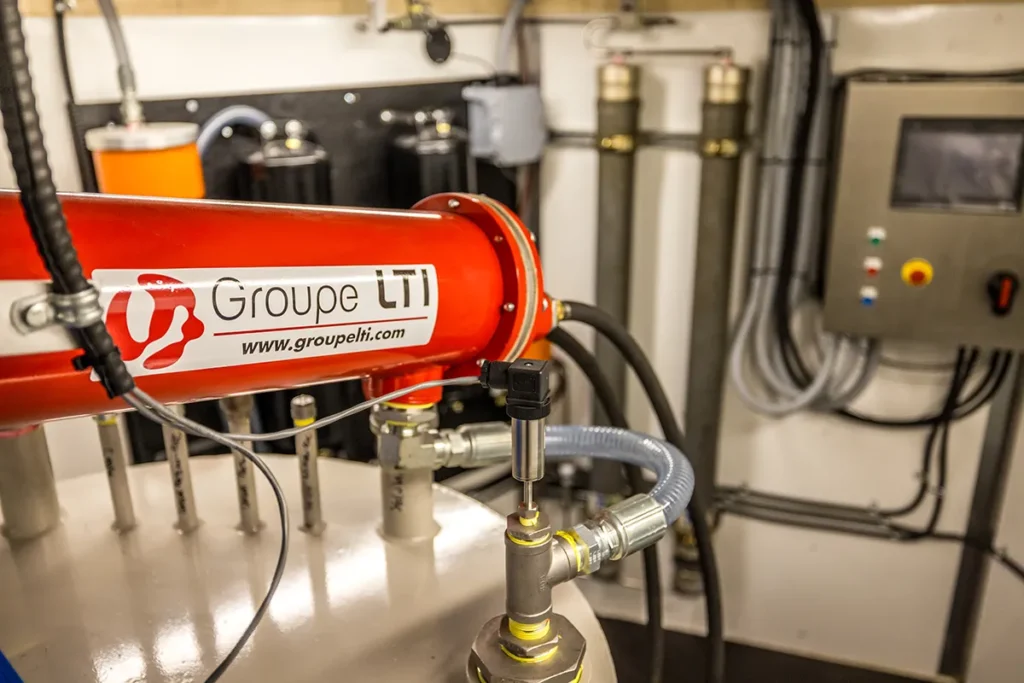Industrial and thermal
fluids decontamination
and filtration
In the industrial sector, fully replacing lubricants, hydraulic fluids, or thermal fluids can result in significant costs — both in terms of product purchases and equipment downtime. Decontamination and filtration provide a much more economical, sustainable, and efficient alternative. These processes effectively remove contaminants — such as water, particles, varnish, sludge, and oxidation residues — while extending the service life of the fluids in use, whether industrial oils or heat transfer fluids.
By restoring optimal cleanliness, premature wear of mechanical components is prevented, breakdown risks are reduced, and system performance is improved — both mechanically and thermally. At LTI Group, we use advanced technologies tailored to each type of fluid: portable or stationary units, vacuum filtration, varnish removal systems, and more. Our interventions integrate seamlessly into your operations, whether during production or planned shutdowns.
By choosing filtration over replacement, you reduce maintenance costs while improving the reliability of your industrial systems.
Industrial fluids decontamination and filtration
Industrial oils are lubricants designed to reduce friction, minimize wear, and protect mechanical components across a wide range of industrial applications. Used in gearboxes, compressors, hydraulic systems, and production lines, they ensure the proper functioning of equipment by forming a protective film between moving parts.
Key properties:
- High oxidation stability
- Excellent lubricating and anti-wear performance
- Corrosion protection
- Viscosity adapted to specific needs (ISO VG)
- Stable behavior under variable pressure and temperature
They may also contain specialized additives depending on the application (extreme pressure, demulsifiers, antioxidants, etc.).
Thermal fluids decontamination and filtration
Thermal fluids, also known as heat transfer fluids, are used to transfer heat in closed-loop systems such as furnaces, heat exchangers, and industrial presses. Unlike industrial oils, their role is not to lubricate but to ensure efficient and safe thermal circulation.
Key properties:
- Excellent thermal conductivity
- High-temperature stability (up to 300 °C and more)
- Low vapor pressure
- Resistance to oxidation and thermal degradation
- Compatibility with system materials
Available in mineral, synthetic, or silicone-based formulations, depending on temperature requirements, service life, and safety needs.
